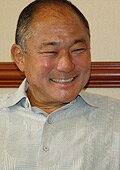This Issue

Winter 2010
Plugged In with Purpose
Read the full story »
Winter 2010 - Department | Headmaster’s Column
The Headmaster’s Column
To get off the educational fad roller coaster is to refuse to conceive of any idea as a cure-all. It is to treat all ideas as elements subordinate to the substantive concept of education.
Educational Fads – How to Get Beyond Education Glitz and GlitterBy Dr. Richard Paul and Dr. Linda Elder

A survey from the National Association of Independent Schools (NAIS) spoke to this issue. In 1999 NAIS asked two groups of people to rank the characteristics of a “quality education.” The first group was a general population of adults. The second group earned more than $150,000 in annual family income and had children under 18 living at home.
The results of the survey were almost identical for both groups. More than 80% rated the following characteristics as high in importance:
- Providing a safe environment
- Employing high-quality teachers
- Maintaining discipline
- Keeping students motivated and enthusiastic about learning
- Supporting a climate that says it’s okay to study and excel
- Preparing students academically for college
- Encouraging parents to participate in their child’s education
- Preventing drug and alcohol abuse
- Preparing students for a life and career in a global economy
- Using computers and other technology to enhance learning
We must remember, however, that these improvements are enhancements, not replacements for the basic features of a quality education.Authentic assessment, laptop schools, character education, cooperative learning, critical thinking, multi-aged classrooms, cultural literacy, interdisciplinary instruction, emotional intelligence, global education, learning styles, middle school, whole language, inquiry-based instruction and other conceptual tenets have filled our classrooms and guided our conversations for a generation.
Such developments have their value, and many of them have indeed been integrated into the ‘Iolani of today. Our quest to improve what we do for children is never ending.
We must remember, however, that these improvements are enhancements, not replacements for the basic features of a quality education.
Organizational structures and educational pedagogy do not inspire students; teachers do. We are fortunate to have excellent teachers, and we work hard to provide them and our students with an environment conducive to teaching and learning. Such is our formula for success.
We may not experience the thrills of riding all the educational ups and downs, but in our own steady way we get the job done. And our students do indeed sparkle.

